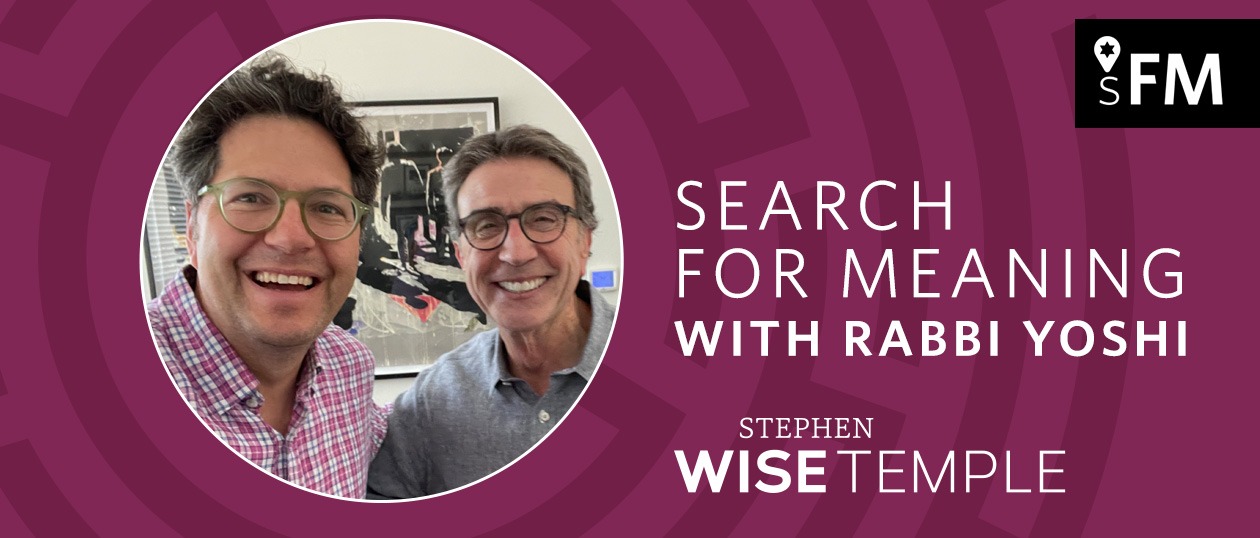In this 66th edition of his Search for Meaning podcast, Stephen Wise Temple Senior Rabbi Yoshi Zweiback hosts board game designer Brian Hersch.
Taboo. Outburst. Super Scattergories. Have you played any of these modern classics at family game night? You have Brian Hersch to thank.
Now a General Partner at Hersch and Company, with over $850 million in sales under his belt, Brian didn’t set out to design games. His first career was in real estate development, where he honed a keen sense for business.
Then came Trivial Pursuit. When the trivia board game first burst onto the scene in the 1980s, Brian was a natural, so much so that his friends urged him to use his creative energies to invent a game of his own. Bringing his business experience to bear on the idea, he set himself to doing some market research, and found that the game’s key feature—its social interactivity—was its most undervalued and under-marketed aspect.
“I’d played games my whole life,” says Brian. “It was second nature. Some people watch television and say, ‘I want to go into television.’ Nobody who plays games says they want to go into games, at least not from our generation.”
Brian (a fan of the show who’s currently listening to Rabbi Yoshi’s interview with Betsy Borns) now runs Hersch and Company with his brother, and is famous for being a creator and proponent of social interactive games.
Hersch has said that the reason he went into adult social games was because they served as a lubrication for rusty social skills. Children are less inhibited, and are more ready, willing, and able to have fun at any moment.
“They don’t carry the burdens of life, the responsibilities, the weight of memories both good and bad,” Brian says. “Can we facilitate a good time amongst a group of people who may or may not know each other? Can we find the common spark that they share so that they discover that there’s something they can enjoy with the same feeling and laughter and pleasure? That’s the biggest part of it. My games have always been group games.”
His titles have now sold over 45 million copies through strategic relationships with companies such as Milton Bradley, Parker Brothers, Mattel, and Western Publishing.

